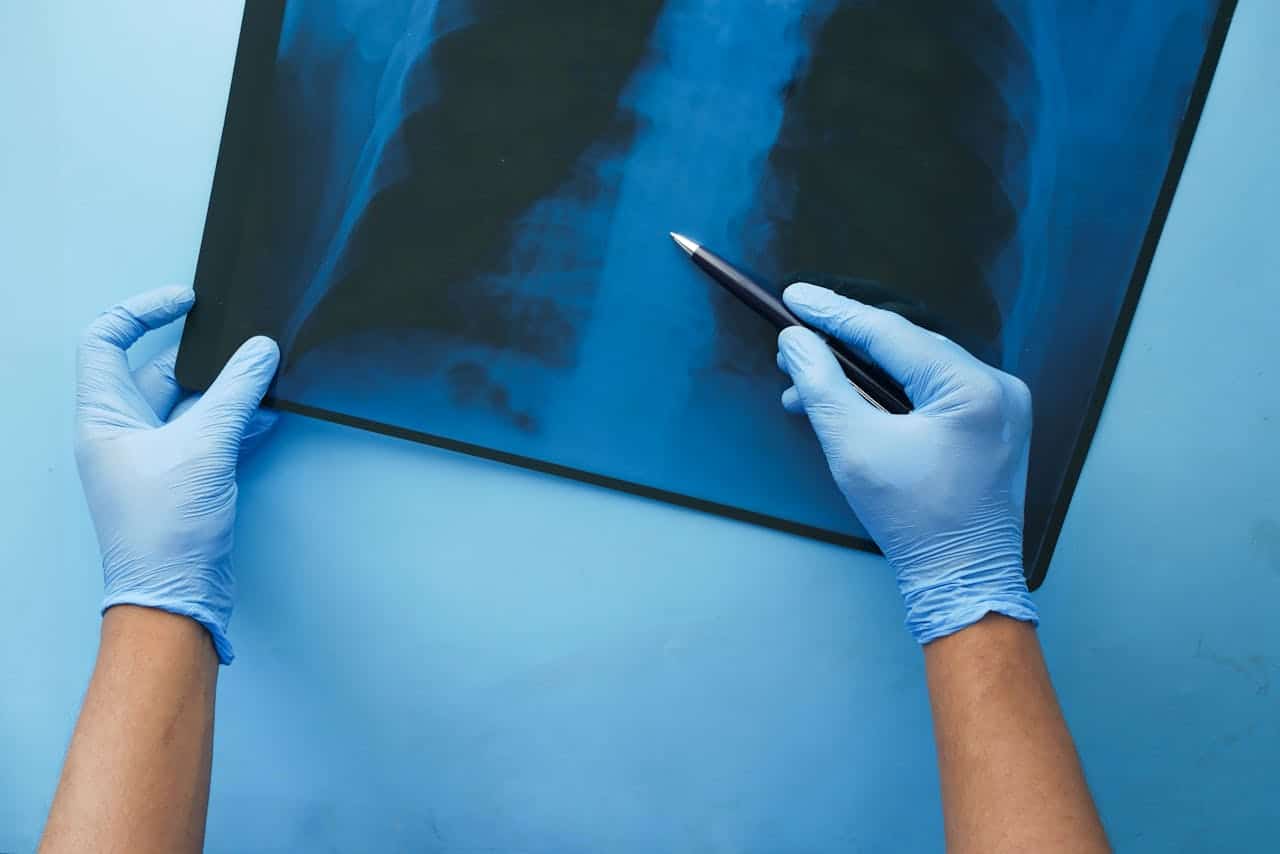A 67-year-old scientist from London has just become part of medical history, although he may not yet realize the full significance. Somewhere in research facilities across seven countries, teams of oncologists are preparing to test something that could fundamentally change how we fight one of the world’s deadliest diseases. Using the same groundbreaking technology that helped end a global pandemic, researchers have developed what could become the first truly effective vaccine against a cancer that kills nearly two million people annually.
Cancer Vaccines Get a Complete Makeover
Traditional cancer vaccines have long disappointed patients and doctors, failing to deliver the protection and treatment benefits that infectious disease vaccines routinely provide. Previous attempts to stimulate immune responses against cancer relied on crude approaches that often triggered weak or temporary immune activation.
BNT116 represents a complete paradigm shift, leveraging messenger RNA technology that proved so successful against COVID-19. Instead of introducing weakened cancer cells or crude protein fragments, this vaccine delivers precise genetic instructions that teach immune cells to recognize and destroy specific cancer targets.
BioNTech, the German company behind one of the most successful COVID-19 vaccines, developed BNT116 specifically for non-small cell lung cancer (NSCLC), which accounts for approximately 85% of all lung cancer cases. NSCLC remains notoriously difficult to treat, with five-year survival rates hovering around 25% for all stages combined.
The vaccine works by presenting tumor-specific markers to the immune system, essentially creating a wanted poster for cancer cells. Unlike chemotherapy, which targets both healthy and cancerous tissue, BNT116 trains the immune system to target only malignant cells that express specific tumor antigens.
Your Immune System Becomes a Cancer-Fighting Machine
BNT116 transforms your body’s natural defense system into a precision-targeted cancer-fighting force. The vaccine delivers mRNA instructions that encode tumor antigens commonly found on NSCLC cells, educating cytotoxic T cells to recognize these specific molecular signatures.
Once trained, these specialized immune cells patrol the body, searching for cells that display the targeted cancer markers. When they encounter malignant cells, the educated T cells launch immediate attacks, destroying cancer before it can establish or spread.

This approach contrasts sharply with current treatments that work by poisoning rapidly dividing cells or blocking specific growth pathways. Traditional chemotherapy cannot distinguish between healthy cells that divide frequently (such as hair follicles and the digestive tract lining) and cancer cells, resulting in widespread side effects.
The vaccine’s precision targeting means your immune system learns to fight cancer while leaving healthy tissues untouched. Patients may experience mild immune activation symptoms similar to those associated with other vaccines, but avoid the devastating side effects typically linked to chemotherapy and radiation.
Clinical Trials Span Multiple Countries and Stages
The BNT116 trial represents one of the most comprehensive cancer vaccine studies ever conducted, enrolling approximately 130 participants across 34 research sites in seven countries. This international scope ensures diverse patient populations and robust data collection under various healthcare systems.
Trial participants include patients with different stages of NSCLC, from early-stage disease before surgery or radiation to advanced metastatic cancer. This broad inclusion allows researchers to evaluate the vaccine’s effectiveness across the full spectrum of lung cancer progression.
Janusz Racz, a 67-year-old artificial intelligence scientist from London, became the first UK patient to receive BNT116 at University College London Hospital (UCLH). His participation represents both personal hope for cancer prevention and a contribution to scientific advancement that could help thousands of future patients.
The trial design includes multiple cohorts testing BNT116 alone and in combination with established cancer treatments, such as checkpoint inhibitors, chemotherapy agents, and other immunotherapies. These combination approaches may produce synergistic effects that exceed the benefits of individual treatments.
Combination Therapy Could Amplify Results
BNT116 trials include testing combinations with checkpoint inhibitors, such as cemiplimab, which remove the immune system brakes that cancer cells exploit to evade detection. When used together, the vaccine educates immune cells while checkpoint inhibitors ensure those cells remain fully activated against cancer.
Combination approaches with traditional chemotherapy drugs like docetaxel, carboplatin, and paclitaxel may provide complementary anti-cancer effects. While chemotherapy directly damages cancer cells, the vaccine trains immune cells to eliminate any surviving malignant cells and prevent recurrence.
Researchers are also testing BNT116 with other investigational immunotherapies, including antibodies that target specific cancer cell surface proteins. These combinations could create multi-pronged attacks that overwhelm cancer’s ability to escape immune surveillance.
The trial design allows researchers to identify optimal combination strategies that maximize anti-cancer effects while minimizing side effects. Successful combinations could become standard treatment protocols, dramatically improving lung cancer outcomes.
Technology Advances Make Delivery Possible
mRNA vaccines require sophisticated delivery systems to protect genetic material and ensure cellular uptake. BNT116 uses advanced lipid nanoparticles that shield mRNA from degradation while facilitating entry into immune cells.
Cold chain storage requirements, similar to those for COVID-19 vaccines, ensure the stability of mRNA during transportation and storage. Healthcare facilities participating in trials have established protocols for maintaining proper temperatures and handling procedures.
Manufacturing scalability represents a crucial consideration for eventual widespread deployment. BioNTech has demonstrated the ability to produce mRNA vaccines at a global scale, suggesting BNT116 could be manufactured in sufficient quantities if trials prove successful.
Quality control measures ensure the consistent composition and potency of vaccines across different production batches. Regulatory agencies require extensive oversight of manufacturing to ensure that patients receive identical products, regardless of production location or timing.

Prevention Versus Treatment Applications
Current BNT116 trials focus on treating existing NSCLC, but future applications might include preventing cancer development in high-risk individuals. Preventive vaccination could protect people with genetic predispositions, environmental exposures, or other lung cancer risk factors.
University of Oxford researchers are developing LungVax, a related project aimed at preventing the development of lung cancer in high-risk populations. Preventive cancer vaccines represent the ultimate goal of cancer immunotherapy, stopping disease before it begins.
Early-stage treatment applications show particular promise, as the vaccine could eliminate minimal residual disease after surgery or radiation. Patients with completely resected tumors might receive vaccination to prevent recurrence, potentially converting curable cases into permanent cures.
The distinction between treatment and prevention may become increasingly blurred as vaccine technology advances. Patients with pre-cancerous conditions or genetic cancer syndromes might receive preventive vaccination, while those with active disease receive therapeutic immunization.
This Could Change Cancer Care Worldwide
Lung cancer kills approximately 1.8 million people annually worldwide, making it the leading cause of cancer deaths. Effective vaccination could dramatically reduce this mortality burden while improving the quality of life for millions of patients and families.
Healthcare systems worldwide struggle with lung cancer treatment costs, which often exceed hundreds of thousands of dollars per patient. Vaccination approaches could reduce overall treatment expenses while improving outcomes through earlier intervention and prevention strategies.
International collaboration in BNT116 trials demonstrates global commitment to advancing cancer care. Successful results could lead to rapid regulatory approval processes in multiple countries, ensuring broad patient access to breakthrough treatments.
The precedent set by the COVID-19 vaccine development demonstrates how quickly effective vaccines can be developed, tested, and deployed globally when resources and regulatory systems are aligned. Cancer vaccines could follow similar accelerated pathways if safety and efficacy data support approval.
My Personal RX on Cancer Prevention and Immune Health
As a physician who has witnessed both the devastating effects of lung cancer and the remarkable potential of immune-based treatments, I find the development of mRNA cancer vaccines incredibly hopeful. While we await trial results, this breakthrough reminds us that our immune systems possess extraordinary power to fight disease when properly educated and supported. Patients often ask what they can do to prevent cancer or support treatment, and I emphasize that maintaining a healthy immune system through lifestyle choices provides the foundation for any future immunotherapy success. Whether or not cancer vaccines prove transformative, strengthening your natural defenses remains one of the most important steps you can take for long-term health.
- Support immune system function through proper nutrition: Consume antioxidant-rich foods, lean proteins, and anti-inflammatory ingredients that provide the building blocks your immune cells need to function optimally.
- Maintain healthy gut microbiome for immune training: Use MindBiotic supplements containing probiotics and prebiotics that support immune system development and help your body distinguish between harmful and beneficial substances.
- Reduce cancer risk through lifestyle modifications: Avoid tobacco, limit alcohol consumption, maintain a healthy weight, exercise regularly, and minimize exposure to environmental carcinogens that increase lung cancer risk.
- Prepare immune-supporting meals during treatment: Cook nutrient-dense recipes from Mindful Meals cookbook that provide vitamins, minerals, and compounds that support immune function during cancer treatment or prevention efforts.
- Stay current with cancer screening recommendations: Follow guidelines for lung cancer screening if you meet high-risk criteria, as early detection dramatically improves treatment outcomes regardless of available therapies.
- Practice stress management for immune optimization: Chronic stress suppresses immune function; therefore, use meditation, yoga, or other stress-reduction techniques to help maintain robust immune surveillance against abnormal cells.
- Consider genetic counseling for family history: If lung cancer runs in your family, genetic testing and counseling can help determine your risk level and appropriate prevention strategies.
- Participate in research when appropriate: Consider participating in clinical trials if you have lung cancer, as trials like BNT116 offer access to cutting-edge treatments while advancing medical knowledge.
- Build strong healthcare partnerships: Develop relationships with oncologists, primary care providers, and other specialists who can guide you through prevention strategies and treatment options.
- Maintain hope while staying realistic: Cancer vaccine development represents genuine scientific progress; however, continue to follow established prevention and treatment guidelines while supporting ongoing research efforts.
Sources:
Hussain, M. S., Sultana, A., Bisht, A. S., & Gupta, G. (2025). Groundbreaking mRNA lung cancer vaccine trials: A new dawn in cancer treatment. Current Cancer Drug Targets, 25. https://doi.org/10.2174/0115680096360059250131075456
Honisch, C., Ragazzi, E., Hussain, R., Brazier, J., Siligardi, G., & Ruzza, P. (2021). Interaction of a Short Peptide with G-Quadruplex-Forming Sequences: An SRCD and CD Study. Pharmaceutics, 13(8), 1104. https://doi.org/10.3390/pharmaceutics13081104











 Subscribe to Ask Dr. Nandi YouTube Channel
Subscribe to Ask Dr. Nandi YouTube Channel









